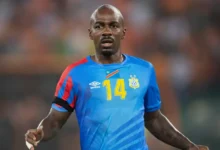Life of footballer as determined by fake agents

TRAFFICKING of young potential footballers is increasingly becoming very rampant as criminals posing to be football agents continue to exploit and wreak havoc.
It appears as if governments and Football Associations are not concerned as footballers are hoodwinked on daily basis by these traffickers.
There are countless barriers that hamper the growth of young promising footballers (local players especially) – and they’ve got to be tackled for the sport to be well received in Africa just as in developed football countries.
Africa, predominantly, has a lot to do, as local footballers are not well catered for in domestic football.
Gone are the days where Licensed Football Agents go the extra mile to help secure good deals for footballers with bright prospects.
Sadly, the past few years has seen some unscrupulous people, who parade themselves as FIFA Licensed Agents, take advantage of the players, some as young as 12 – exploiting their parents with the hopes of securing lucrative deals for them.
Aside other causes of football trafficking, the greed for wealth, poor remuneration of local players – who are desperate to get out of their situation, has given traffickers the leeway to lure footballers.
These crooks pose as soccer agents, using social media sites to dupe footballers; convincing hard-up families into coughing up colossal amounts of money to send their wards to Europe for non-existing big contracts.
Other fake agents practise their stock-in-trade by cloning professional clubs invitation to dupe footballers. It must be emphasised that most of these targeted players are from African countries; and they are usually ‘trapped’ through social networks, in streets or during informal tournaments.
Traffickers tell their victims to pay a required fee to which they would be given an invitation from the club they will be joining. They give out account numbers with different names to be paid to. One does the chatting on social media and the other does the money transfer dealings. Two different parties are involved here.
The fraudsters appear legitimate by building online profiles in the names of unwitting FIFA Approved Agents. They produce phoney with top flight clubs Crest (logo) at the top, detailing lucrative contracts worth thousands of pounds each week.
Some even claim their victims will land signing-on fees worth more than £500,000 as well as a club flat and a car when they arrive.
Many are given fake documents and are often taken to a remote country like Nepal, supposedly to wait for visas and later they are abandoned there.
Wherever they end up, they are often forced into life of slavery, prostitution and drug deals, etc.
Obviously, the hunger to play abroad makes them targets to these fraudsters.
It is for these reasons that young potential footballers in Ghana should be very wary of the so-called agents whom they come across on social media.
To get an agent is not a problem but getting a reliable one is a very big problem. The advice to footballers in Ghana, especially in the domestic league is, we should be on the watch-out for individuals who pretend to be FIFA Licensed Agents but are just normal people trying prey on their innocence.
BY LINUS SIAW LARTEY
The writer is a Student of the Ghana Institute of Journalism




